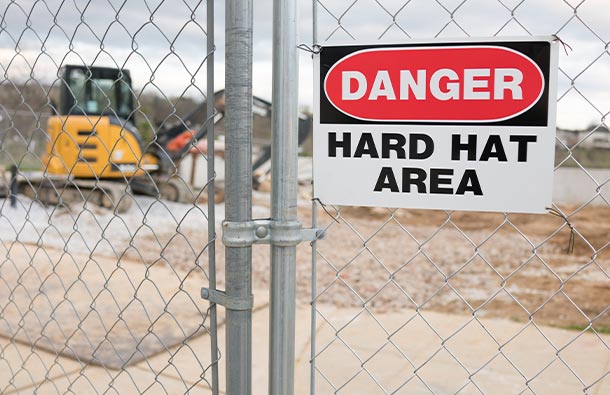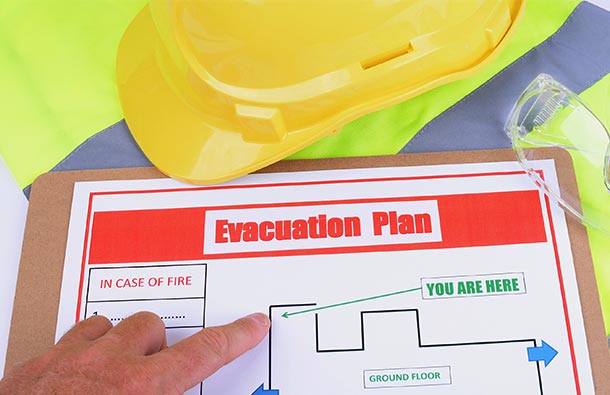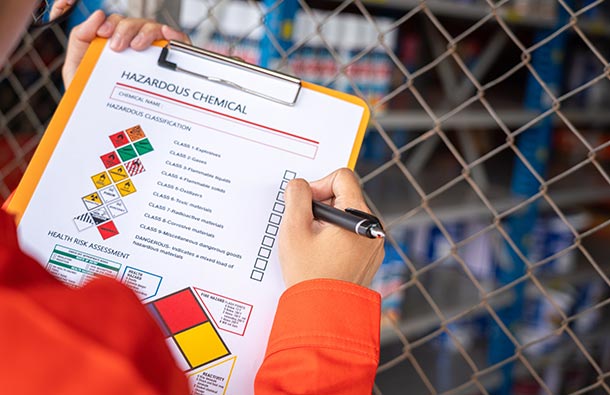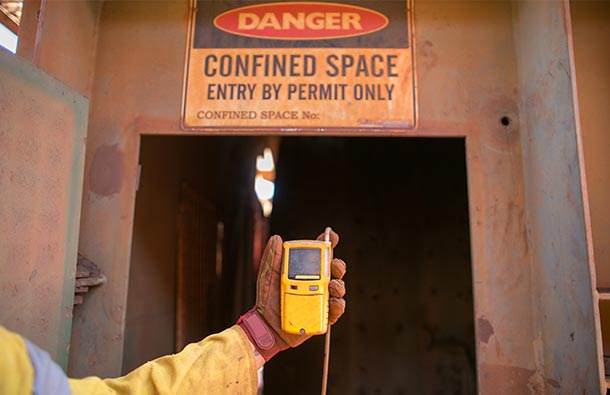OSHA Safety
OSHA classes cover health hazard awareness and procedures in all industrial environments. From accident investigations and prevention to recordkeeping regulations, our classes have you covered!
Introduction to Safety and Health Management
Using interactive assignments and thought-provoking group projects, students of this one-day workshop come away with a strong understanding of the benefits in implementing a safety and health management system in the workplace. (Minimum contact hours – 5.5)


Introduction to Incident (Accident) Investigation
Introduction to accident investigation provides an introduction to basic accident investigation procedures and describes accident analysis techniques. The goal of the course is to help participants gain the basic skills necessary to conduct an effective accident investigation at their workplace. The target audience is the employer, manager, employee or employee representative who, as part of the firm’s safety and health system, would be involved in conducting accident and/or near-miss investigations. (Minimum contact hours – 7.5)
OSHA Guide to Industrial Hygiene
This course covers industrial hygiene practices and related OSHA regulations and procedures. Course topics include recognition, evaluation, and control of chemical, physical, biological and ergonomic hazards, Permissible Exposure Limits (PEL), OSHA health standards, respiratory protection, engineering controls, OSHA sampling protocols and strategies, and workplace health program elements. (Minimum contact hours – 26)


Principles of Ergonomics
This course covers the use of ergonomic principles to recognize, evaluate, and control workplace conditions that cause or contribute to musculoskeletal and nerve disorders. Course topics include work physiology, anthropometry, musculoskeletal disorders, use of video display terminals, and risk factors such as vibration, temperature, material handling, repetition, and lifting and patient transfers in health care. Course emphasis is on industrial case studies covering analysis and design of workstations and equipment workshops in manual lifting, and coverage of current OSHA compliance policies and guidelines. (Minimum contact hours – 18)
Electrical Standards
This course covers OSHA electrical standards and the hazards associated with electrical installations and equipment. Course topics include single- and three-phase systems, cord and plug connected and fixed equipment, grounding, ground fault circuit interrupters, and safety-related work practices. Emphasis is placed on electrical hazard recognition and OSHA standards, policies and procedures and applicable portions of the National Electrical Code (NEC). Students will participate in workshops on the safe and correct use of electrical testing equipment. (Minimum contact hours – 26)


Evacuation and Emergency Planning
Evacuation and emergency planning focuses on OSHA requirements for emergency action plans and fire protection plans. Preparing for emergencies is a basic principle of workplace safety and health. Participants will learn: (1) reasons for emergency action plans and fire prevention plans and when they are required for a workplace; (2) elements of a good evacuation plans; and (3) features of design and maintenance of good exit routes. The optional session for this course will focus on assessment of risk for terrorist attack and how to utilize OSHA’s two matrices: (1) evacuation planning and (2) fire and explosion, as tools in planning for emergencies. (Minimum contact hours – 4)
Health Hazard Awareness
This course provides an introduction to common health hazards that are encountered in the workplace. These health hazards will include exposure to chemicals, asbestos, silica and lead. The course will feature these topics: identification of hazard; sources of exposure; health hazard information; evaluation of exposure; and engineering and work practice controls. (Minimum contact hours – 6)


Silica in Construction, Maritime, and General Industries
This course covers the development and implementation of controls and strategies to prevent or mitigate silica exposures in construction, maritime, and general industries. Course topics include describing the requirements of OSHA’s Respirable Crystalline Silica standards and recognizing the hazards and risks, assessment options, and exposure control measures associated with silica exposure. (Minimum contact hours – 7)
Recordkeeping Rule Seminar
This course covers OSHA requirements for maintaining and posting records of occupational injuries and illnesses and reporting specific cases to OSHA using new forms 300, 300A and 301. (Minimum contact hours – 4)


Permit-Required Confined Space Entry
This course is designed to enable students to recognize, evaluate, prevent, and abate safety and health hazards associated with confined space entry. Technical topics include the recognition of confined space hazards, basic information about instrumentation used to evaluate atmospheric hazards, and ventilation techniques. (Minimum contact hours – 20)
